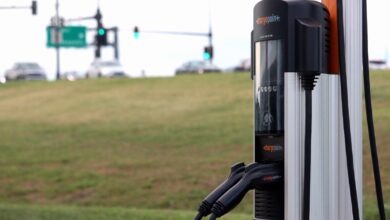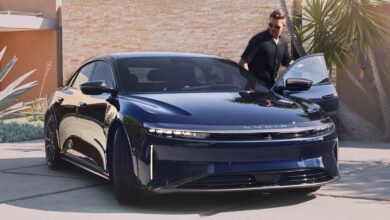These Nine States Will Phase Out Gas Car Sales by 2035

In a major shift away from traditional internal combustion engines, a growing number of states are adopting rules that will effectively ban the sale of new gasoline-powered cars and light trucks by 2035. The states are following California’s lead with its Advanced Clean Cars II (ACCII) regulation, which sets yearly increasing quotas for automakers to sell more zero-emission vehicles like electric cars.
So far, eight states have officially adopted the ACCII rules for light-duty vehicles: Maryland, Massachusetts, New Jersey, New York, Oregon, Rhode Island, Washington, Virginia, plus Washington D.C. Three additional states—Connecticut, Maine, and New Mexico—are also considering adoption of the ACCII standards.
Under the ACCII mandates, 35% of new vehicle sales in these states must be fully electric or other zero-emission vehicles by 2026. This percentage then ramps up year-over-year until hitting 100% by 2035, at which point sales of new gas-only cars and trucks would be prohibited.
Several other states like Colorado, Delaware, and Minnesota have opted to adopt only portions of the ACCII regulation so far. But more could join in phasing out gas vehicles as the momentum toward vehicle electrification accelerates.
What this means for gas car owners
The new rules do not impact existing vehicles, so owners of gasoline-powered cars and trucks can continue driving them and even reselling them on the used market in these states. The bans only restrict what new car models can be sold by automakers and dealers.
However, down the road, owning an older gasoline vehicle may become more inconvenient and costly if public charging infrastructure prioritizes electric vehicles and if gasoline prices rise due to lower demand.
Still, with the typical vehicle lifespan of 12-15 years currently, most gas-powered cars on the roads today will be ready for replacement by the time the bans fully take effect in 2035.
More states could follow
While roughly a quarter of states have now signed on to ACCII’s gas car phaseouts, it remains to be seen how quickly others will adopt similar policies aimed at accelerating electric vehicle adoption. Politics, infrastructure readiness, and economic factors could impact how rapidly the remaining states move to restrict gasoline cars.
But with the federal government also incentivizing EV production and state-level emission reduction goals, it appears to be more a matter of when—not if—the rest of the country will be set on a path toward eliminating sales of new gas-powered light vehicles over the coming decades. For more, check out our guide to the costs of EVs.



